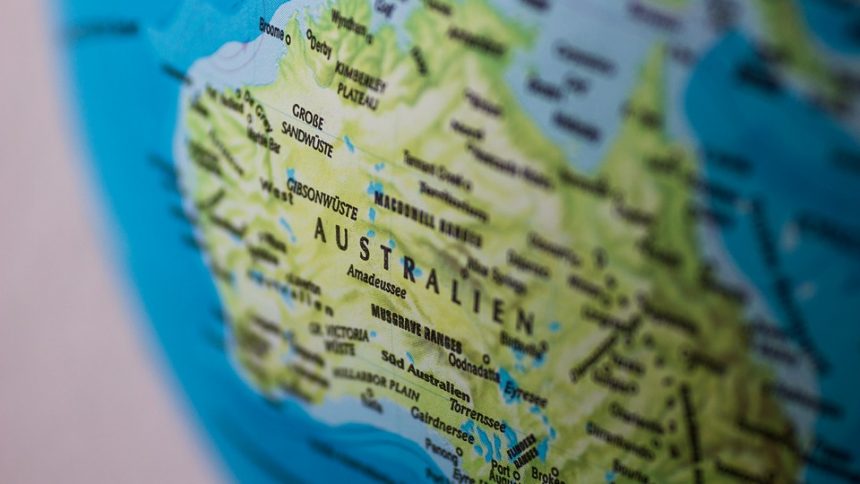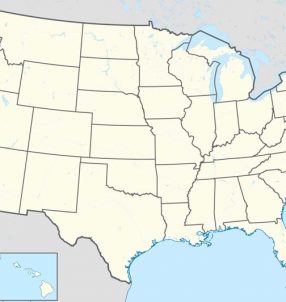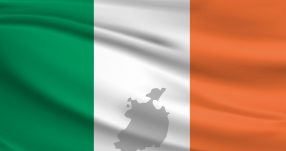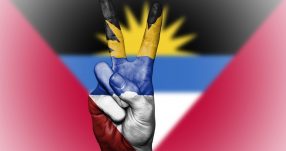Over the past two centuries the former British colony of Australia has developed arguably the world’s deepest gambling culture. The Aussies have been called a “nation of gamblers” and people who will bet on “two flies on the wall.” Year after year Australia is among the world leaders in amount of money wagered (and lost) per person on events as diverse as card games, poker machines, horseracing, cricket and frog jumping.
In contrast to more puritanical societies like Britain and the US the Australian government has always had an exceptionally liberal attitude towards gambling, tolerating most forms of the activity even if not making them officially legal. Gambling is now inseparable from the heart and mind of the average Australian.
History of Gambling in Australia
It is reported that the Aboriginal people had no forms of gambling comparable to that found in European societies. There is evidence that cards games first arrived with traders from Southeast Asia and the Indian Ocean, although these practices didn’t establish a permanent presence on the island.
Gambling became a permanent social institution in Australia beginning with the arrival of the first European colonists in 1788. This marked what is called the “first major period of Australian gambling.”The popularity ofgambling in the colony is usually connected to its status as a remote outpost within the British Empire, populated by criminals, adventurers and gold prospectors.
The colonists lived in dangerous conditions in remote areas, struggling to make a living with the little resources that were available. This high-risk environment naturally attracted those who were willing to take risks in all parts of life, gambling included. Early British and Irish settlers in Australia, many of whom were convicted criminals, brought centuries-old card playing and betting traditions with them and the practice was encouraged by the conditions of the new environment.
During this time there were very few entertainment or leisure activities available to settlers, so gambling was the simplest escape from the troubles of everyday life as it required only a deck of cards and something to place wagers with. Most historians agree that gambling has taken such a strong place in Australian culture because of the country’s unique history. According to the Australian Institute of Gambling Research:
“Gambling, profanity and drunkenness tend to flourish in any frontier society where there are few women but, as we have seen, these vices were indulged all the more readily because they were regarded as characteristic of the old colonial hands…Gambling, it is often argued, is an expression of the basic egalitarian values of Australian society, enabling ‘equality of opportunity’ in the search for wealth and excitement. Complementing this view, gambling is seen as reflecting an underlying fatalism derived from the unyielding nature of Australia’s harsh environment and its social origins.”
Early opposition to the activity
While gambling quickly became Australia’s national pastime, historical records show that many colonial administrators and governors considered it to be a harmful social problem and attempted to discourage it. Rather than viewing it as something distinctly “Australian,” most of these early anti-gambling advocates blamed the settlers themselves, arguing that most of them were hardened alcoholics and gambling addicts who simply brought their rotten habits to the new colony.
But while gambling was very popular amongst the working class in Britain and Ireland during that time, research shows that it occurred more frequently in Australia than anywhere else. Even if settlers brought old habits with them, the local environment certainly encouraged it.
Administrators and religious free-settlers discouraged the activity, calling it “vice and depravity” and “anti-social behavior.” Protestant clergy and puritanical middle-class settlers did their best educate working class people and criminals about the evils of gambling, and colonial officials attempted to use harsh punishments to scare gamblers off the activity.
Despite their best efforts, anti-gambling crusaders never had much success. Early colonial Australia faced constant food shortages, violence and a large illegal alcohol trade. Administrators had to focus their attention on these immediate problems, so opposition to gambling never given their full attention. From 1788 to 1900 gambling and card playing was illegal, but nowhere did authorities come up with effective ways of enforcing these laws.
Gambling becomes regulated
Gambling was a basic part of everyday life but had never been regulated by the authorities. Over time, it became something that the colonial administration outwardly condemned but permitted anyway. Some historians argue that because Australia didn’t have an aristocracy or wealthy upper class like in Britain and America that the preferences of working-class people eventually won out over anti-gambling forces. Over time the activity became accepted in more forms.
By the late 19th Century, however, the country was more developed socially and economically, and local governments began experimenting with regulating the activity. The first form of legal gambling was betting on horse races. In 1810 a horse race was held at Hyde Park in New South Wales, which is believed to be the first legal betting event in Australia’s history. By the 1850s the capital city of each territory had a turf club which was generally a meeting place for wealthy landowners (just as in Britain and America).
During the 20th Century the government took an increasingly liberal attitude toward gambling, in some cases even actively promoting it. Some gambling services, like lotteries and off-track betting shops were government-owned monopolies which provided tax revenue. Others, including casinos and racetracks, were usually privately owned by heavily taxed, so governments had an incentive to promote them.
Lotteries are born
As Australia became increasingly settled and economically developed the state came under pressure to provide social services like education and healthcare. Looking to raise revenue without significantly increasing taxes, many states came up with the idea of legalizing lotteries. During the same period and for similar reasonslotteries were becoming common in the US. With the exception of Louisiana, however, these lotteries were state-owned and operated. Australia took a different path, granting charters to private companies to run sweepstakes lotteries.
The first such private operations in Australia were Tattersall’s lotteries in Sydney, which began selling tickets during the 1880s. However, the state government banned them shortly after, and the company was forced to move to Queensland, then to Tasmania and later to Victoria. Like in many other countries this form of gambling has gone through a continuous pattern of ups and downs throughout its history. Each period of liberalization has been followed by one of anti-gambling puritanism.
Lotteries made a comeback in the post-war period, with Tattersall’s having a dominant market position as the only private provider in the country. In 1981 it established the Australian Lotto Bloc, combining prize pools from Victoria, Tasmania, the ACT, the Northern Territory, South Australia and Western Australia and was licensed to run a separate lotto in Queensland. Until 1996, when the Northern Territory introduced one, Tattersall’s was the only private lottery operating in the country.
State governments began sanctioning publicly-owned lotteries, and currently most of them work in partnership with Tattersall’s. Other major state-owned lottery corporations include South Australian Lotteries and Lotterywest. South Australian Lotteries was founded in 1967 as the first state-owned lottery in Australian history, and their services are currently operated by Tattersall’s. Lotterywestsold its first tickets in 1993 and continues to operate on a state-run basis.
Off-track betting
Betting was taken gradually over by state-owned Totalisator Agency Boards (TABs), which had a monopoly over off-track betting in their respective areas. By 1970 betting on horses was the most popular gambling activity in the country and run almost exclusively by TABs. It became a crucial source of tax revenue for states; governments also had political incentives to operate TABs because of the unpopularity of raising income tax rates.
During that time these companies took bets only on horseracing, as wagering on other sporting events remained illegal. This didn’t stop Aussies from betting on football, cricket, boxing and other sports. Underground betting shops had been a big business in Australia for more than a century. However, the legalization of betting at large in the 1980s led TABs to diversify into other sports, allowing locals to place legal wagers on non-horse events for the first time.
TABs expanded into PubTAB and FootyTab, and sportsbettingstarted making a bigger business than ever before. While Australians were legally betting on sports in ever-greater numbers, diversity in the gambling market prevented their profits from rising. In fact, competition from casinos and gambling machines was cutting into the market share of TABs, making them less and less profitable.
Governments began to privatize TABs starting with Victoria in 1994. The betting market opened up to private companies, and the now privately-owned TABs were competing with startups and foreign bookmakers. Since then many UK-based bookmakers like Betfair, Unitbet and BetVictor have entered the Australian market.
The rise of modern casino gambling
Legal casino gambling in Australia has its roots in the years 1900-1940. Card playing had always been popular with Aussies, but large card clubs had never been established. This began to change after 1900 with American naval servicemen stationed at bases in the Pacific Ocean taking regular trips to Australia.
Many of these men were looking to gamble and large card clubs began sprouting up. While these businesses were not expressly legal, state governments generally turned a blind eye to them, interested in the money which American servicemen brought into the country.
The popularity of pokies (poker machines) in private clubs also motivated the rise of casino gambling. The machines were first legalized in New South Wales in 1956. While pokies had been popular in the country since the beginning of the 20th Century (shortly after the first slot machine was invented in the US), they had not been licensed to operate until that time. Later, in 1970, the Capital Territory also legalized pokies.
Casino gambling really took off during the post-war period when the expanding tourist industry created new opportunities and state governments took a two-fold interest in controlling legal gambling and raising revenue without increasing taxes (a theme common to gambling legalization in most countries and during most time periods). The states whichlegalized different forms of land-based gambling were relatively undeveloped and saw gambling as a way to boost their tourist industries. Early legalizers were Tasmania and the Northern Territory two of Australia’s poorest territories, while Victoria, New South Wales and the Capital Territory held out the longest. Having wealthier and more diverse economies, they felt less pressure to boost their tourism sectors.
Casinos were also fundamentally different from other forms of gambling. Whereas lotteries and legal off-track betting were traditionally state-run until recently, Australia’s casino industry has been (with the exception of the state-owned Adelaide casino) owned and operated exclusively by private companies. This is because, while also attractive to state governments, casino legalization came about from lobbying by tourism companies eager to get into the gambling business.
The first full-fledged casino, Wrest Point Hotel Casino, opened in 1973 in Hobart, Tasmania.At the time Tasmania was one of the poorest regions in Australia and state officials saw the move as part of plan to attract tourists and earn revenue to fund public services and infrastructure projects.
That move sparked a wave of casino legalizations across the country, with each state now having at least one licensed establishment. In some cases the public was overall receptive to the idea, in others licenses were granted over after fierce public debate. Even with gambling holding such an important place in Australia culture many people still have negative views of it
Between 1979 and 1982 casinos opened in Launceston, Alice Springs and Darwin. These early casinos were influenced more by British “clubs” than Las Vegas-style casinos, putting more emphasis on style and etiquette and catering largely to wealthy tourists rather than ordinary working people.
In the early to mid-1980s casinos also opened in Surfers Paradise, Townsville, Perth and Adelaide. These are called the “second wave” of Australian casinos. By now foreign investors from the US had gotten interested in the market, and these casinos were much larger and aimed at mass market tourists, not just wealthy high-rollers. In the span of one decade Australia went from a country without a single licensed casino to having one of the densest casino markets in the world.
What set it apart from most other countries, most notably the US, is that rather than confining casinos to special geographic areas state governments across the country each legalized them in a short amount of time. Wherever one lived there was at least one land-based casino within state borders. By 1988 Victoria was the only state in Australia without a licensed land-based casino, as citizens and public-interest groups fought hard against legalization out of the belief that it would lead to crime and other social ills.
Non-European gambling in Australia
As stated previously, the Aboriginal people had no forms of gambling comparable to that native to Europe and Asia. And while British colonists first introduced the activity during the late 18th Century, they were not the only people to bring foreign gambling traditions to Australia.
In the 1840s Chinese settlers came to the island for the first time, bringing traditional Asian forms of gambling like Mahjong and Tan-Fan. These games were first played exclusively by Chinese settlers and gold prospectors but eventually spread to major cities. While European casino games like blackjack, baccarat and poker are the most popular casino games in Australia, these forms of gambling still enjoy a fair amount of popularity in Australian casinos.
During the 19th and early 20th Centuries the authorities often associated Chinese settlers with gambling, immorality and bribery of police. An 1891 study by the Royal Commission in New South Wales found that of 3,500 Chinese living in Sydney, 700 were making a living as professional gamblers.
History of online gambling in Australia
Online gambling came to Australia as the internet revolution was taking off during the mid-1990s. Given the combination of a high rate of internet connections and the cultural popularity of gambling, it comes as no surprise that Aussies quickly began gambling and betting online in large numbers and with large sums of money.
By 2009 it was estimated by the Australian Betting Commission that Australians spent $790 million annually gambling online; an average of roughly $34.8 for every man, woman and child in the country.
State governments began experimenting with their own licensing and regulatory systems, but it has been difficult to prevent online activities from spreading across borders. Anti-gambling groups and some politicians became concerned by the rapid rise of internet gambling and betting, done with the use of a relatively new technology that seemed difficult to control.
Interactive Gambling Act
Even in a country with a generally lax attitude toward gambling, the federal authorities quickly came under pressure to do something to curb the activity. In 1999 a government report recommended banning all forms of online gambling but ultimately the federal government opted for a combination of prohibition and regulation. In 2000 it asked each state government to put a temporary freeze on online gambling while it worked out a new bill.
The next year, 2001, the Australian Commonwealth Parliament passed the Interactive Gambling Act (IGA), a bill which defined legal and illegal gambling activities and spelled out penalties for those offering illegal gambling services.
The IGA made most forms of online gambling illegal, with the exception of sports betting. No Australian company can legally provide or advertise online casino, poker or bingo services to residents of the country. Those caught doing so can face fines of up to $220,000 per day for individuals and $1.1 million for corporations.
However, the IGA did not make it illegal for Australian residents to use internet gambling services, whether they are located in the country or elsewhere (in this way it is similar to the Unlawful Internet Gambling Enforcement Act in the US). Since the passage of the bill the amount of money wagered with overseas casino sites has continued to rise, especially as internet subscriptions rose from 3.8 million to 10.9 million between 2001 and 2011.
In 2010 a government report found that while the IGA most likely slowed growth in online gambling among Australians, it was not successful in preventing them from gambling overseas. Unable to block the use of offshore online casinos, the report declared that “the real effect of the IGA has been
to prevent companies located in Australia from selling online gaming services to Australians.”
Legal issues
Despite Australians having arguably the closest cultural connect to gambling of any people in the world, gambling is not considered a legal profession like it is in some countries such as the US. For that reason gambling winnings are not taxed or tax deductible; only providers of gambling services are taxed.
In recent years international bookmakers operating in Australia complained the state governments give preferential treatment to TABs. In 2010 both Sportsbet and Betfair filed claims that the government of New South Wales illegally discriminated against them by charging a 1.5% fee on all revenue earned by interstate bookmakers. Betfair is licensed in Tasmania and Sportsbet in the Northern Territory, although both accept wagers nationwide.
In 2012 the High Court of Australia ruled that the fee imposed by New South Wales was not unconstitutional and did not violate laws protecting interstate trade and commerce. Following the ruling the government of Victoria announced that it would begin charging a similar fee.
Gambling culture in Australia
Australians are both romanticized and condemned as a “nation of gamblers.” Card playing has been woven tightly into the national culture since the country’s origin as a haven for criminals and gold prospectors. These working class men from Britain and Ireland, later joined by Chinese settlers, brought drinking and gambling habits with them. The harsh, lonely landscape and settlements empty of women and most forms of entertainment left gambling as the only escape from the troubles of everyday life.
During the 19th Century the Australian tendency to play cards was joined by the increasing popularity of horseracing. While many forms of gambling and betting were illegal in Australia until fairly recently, horseracing has existed in legal form since 1810.
Aussies also love betting on sports such as cricket, Australian football, association football, golf and tennis. Betting on these events was illegal until the early 1980s, however, prohibition has never stopped the average Aussie from making wagers.
Anti-gambling movements
There have always been anti-gambling persons and groups working to curb the activity in Australia. It began in the early days of British settlement when colonial administrators and Presbyterian ministers tried to discourage criminals and working-class settlers from playing card games; viewing it as a moral and social problem.
In the early colonial period settlers struggled with constant food shortages, violence and a thriving illegal alcohol trade. The authorities simply had too many pressing problems to devote serious time and resources to fighting illegal gambling. It became an activity which was formally illegal but occurred almost everywhere at all times. In this sense, anti-gambling groups were powerful enough to lobby for laws against the activity but lacked the power to ensure that laws were actually enforced.
During the 20th Century anti-gambling groups were not successful in stopping a general trend toward legal gambling in the country. While pressure from them kept land-based casinos out of Victoria, New South Wales and the Capital Territory until the late 1980s, after the rest of the country had legalized them, eventually business interests and the need for tax revenue won out. Now every state has at least one licensed casino and most forms of sportsbetting are legal.
In recent years popular opposition to gambling has centered around the use of pokies (poker machines) which are extremely popular but associated with problem gambling. Pokies are located in pubs and betting shops across the country, and there is a push to at least limit where they can operate, if not ban them completely. Just like critics of fixed odds betting terminals in the UK, Australian opponents argue that the majority of pokies are placed in low-income areas, putting poor and working-class people at extra risk for gambling addiction.
Major betting events
Numerous events hold special places in Australia’s gambling and betting culture. The most obvious is the Melbourne Cup, an annual horseracing event which attracts wagers from millions of Australians each year. In 2009 the TAB alone took in $107 million in bets just in the states of New South Wales and Victoria. There is a common saying: “even those who are against betting bet on the Melbourne Cup.”The Australian Open tennis tournament also does big business with Aussie bettors.
Two-up
While most of the country’s gambling traditions have been imported from other continents, the game of “two-up” is celebrated as a distinctly Australian game. Two up is a simple game in which players place bets on a coin flip. One person, called a “spinner,” stands in the middle of a circle and tosses two coins. Players bet on whether both will come up heads (obverse), both will come up tails (reverse), or the flip will land one of each (odds).
Two-up was first popularized by convicts during the early days of colonial Australia and later by gold prospectors during the 19th Century. “Schools” were operating in every city and town by the First World War. Despite being considered by many to “Australia’s favorite game” it was not officially legal to play anywhere in the country until 1973 when it was offered at the Wrest Point Hotel Casino in Hobart.
By the 1950s the popularity of the game had faded with the rise of European casino games like blackjack and baccarat. However, it still enjoys a nostalgic following. It is legal to play anywhere in the country on Anzac Day, which celebrates the sacrifices of Australian and New Zealand soldiers who fought in the First World War. On this day it is commonly played at Returned Serviceman’s Leagues.
Problem gambling
Problem gambling has become a major social issue in recent years. In a country full of gamblers, it’s not a surprise that many people develop addictions that put their finances, families and friendships at risk. A 2011 study by H2 Gambling Capital found that the average adult lost $1,288 gambling annually, the highest per-person sum worldwide. The report sparked outrage among anti-gambling groups and many politicians, strengthening the push to limit the growth of gambling.
Australia has no lack of resources available for those unable to control their gambling habits. The country has state-funded as well as private support groups and rehabilitation centers. In addition to treatment, state governments have launched campaigns to raise public awareness about the risks of excessive gambling, including spreading information through the media and part of school curriculums.
However, many argue that because gambling is considered a normal part of life and that those admitting to a gambling problem are heavily stigmatized, most are afraid to come forward and get the help that is available to them. In 2007-2008 only 17,500 people actively sought help, whereas there is an estimated 90,000 to 170,000 problem gamblers in the country.
Most of those who have sought help identify playing as pokies as their main problem. In addition, surveys have shown that most problem gamblers also struggle with anxiety issues, depression or alcoholism, although it’s not determined whether these are causes or gambling addiction or vice versa.
Casinos in Australia
Like in the US and Canada, each Australian state licenses and regulates casinos in its own way. Before 1973 casinos were completely banned across the country, but during the 1970s and 1980s the industry expanded greatly in a short amount of time. Australia’s first legal casino, the Wrest Point Hotel Casino, opened in 1973 in Hobart, Tasmania. More states followed, and currently there are 14 licensed land-based casinos operating across the country, with at least one in every territory.
These casinos are popular with locals but also attract tourists from across Asia and the Pacific. Visitors come to enjoy Australia’s beautiful coastal landscapes and activities as well as luxurious hotels and casinos. Licensed casinos include: the Adelaide, Casino Canberra, Christmas Island Resort, Country Club Casino, Crown Casino & Entertainment Complex, Crown Perth, Crown Sydney, Jupiter’s Hotel & Casino, Lasseter’s Hotel Casino, the Reef Hotel Casino, Skycity Darwin, the Star, Treasury and Wrest Point.
The Crown Casino is located on the Yarra River in Melbourne and is the largest establishment in Australia and among the largest in the world. Visitors can play at 500 gaming tables featuring blackjack, craps, paigow, poker, baccarat and roulette. The casino floor is home to 2,500 poker machines. The Crown is reported to be the first casino ever to host games of Rapid Roulette, an electronic version of the classic European casino game.
Australia’s early casinos, Wrest Point and Skycity Darwin, are smaller and inspired by British-style card clubs. Most gamblers visit them to play poker and table games such as blackjack and baccarat. Those built later, especially the Crown casinos, are modelled after large Vegas-style resort casinos, featuring large numbers of gambling tables but also endless rows of slots and video poker machines.
Because Australia’s casino market is an important part of the tourism industry, most of the casinos are part of integrated resorts, featuring large hotels, restaurants, bars, shopping and entertainment facilities. The industry is built to accommodate families and non-gamblers as well as traditional casino patrons.
Crown Resorts Limited
The Crown Casino is part of Crown Resorts Limited, a large gambling network owned by James Packer, the richest man in Australia. Along with the Crown Casino in Melbourne the company owns and operates the Crown Perth and Sydney. It has received a license to open another major resort casino in Sydney at the cost of $1.5 billion and scheduled to open in 2019. The development is said to be designed for VIP gamblers and will include a luxury hotel.
In addition to two of Australia’s largest casinos, the company owns shares in major casinos in Macau, the UK and the US. In 2013 the company was given approval to build a $400 resort in Sri Lanka, although by mid-2014 the government had not yet made a final decision on whether it would allow it to offer gambling services.
Expanded casino licensing
By 2014 every territory in Australia had at least one licensed land-based casino. Economic concerns, however, have led to a movement for even more licenses. The state of Queensland, heavily dependent on the mining industry and with a gradually fading tourism industry, recently decided to issue a new resort casino license in order to attract visitors from Asia and boost employment and economic growth.
Echo, which owns Queensland’s only casino in the capital of Brisbane, began bidding for the new license which will be issued for a development in the Queen’s Warf area of the city. Two Hong Kong-based companies, Chow Tai Fook Enterprises and the Far East Consortium International, are also bidding for the license.
The Queensland government has stated that it will choose a winner sometime in early 2015. Investors and public officials hope that the new resort casino will become a prime destination for Chinese gamblers, to tend to visit overseas casinos because of the lack of legal options on the Chinese mainland.
Online casinos in Australia
Due to the Interactive Gambling Act of 2001 (IGA) no company in Australia can legally offer online casino services to residents of the country. However, it is legal for an Australian company to serve overseas customers if they are playing from a jurisdiction where online casino gambling is legal.
Most importantly, there are no laws in place prohibiting individuals from gambling online. Australians are free to use any offshore online casino they like, and statistics show that many people do just that. Countless international online casinos serve customers in Australia, and some of them even accept deposits in the Australian dollar.
Some online casinos available to Australians and accepting Australian dollars are All Slots, Royal Vegas, ComeOn! Casino and CasinoUK, among many others.
Sportsbetting in Australia
Sportsbetting has been popular in Australia since the 19th Century when turf clubs and later private racetracks became popular social gathering places. For almost 200 years horseracing was the only form of legal betting, although other sports such as cricket, football, boxing and golf have long been favorites of Australian punters. Betting shops are currently legal in all Australian states, with horseracing, cricket and Australian football being the most popular events. Each year Aussies wager hundreds of millions of dollars on the Melbourne Cup horserace.
The largest bookmaker is TAB, which once had a government-owned monopoly in Australia before being privatized in the 1990s. However, the market has since been opened up to competition and international bookies like Bet365, Betfair and Unibet operate betting shops there.
Online sportsbetting in Australia
Unlike most forms of internet gambling, the Interactive Gambling Act of 2001 left online sportsbetting to operate legally. However, the only legal forms of online betting are horseracing and betting on sporting events before play has begun. Live betting and prop betting online are illegal in Australia. The authorities consider this type of betting to be highly addictive so have decided to ban it altogether.
After the act was passed online sportsbetting continued to increase in popularity. In 2007 roughly 10% of thoroughbred wagers were placed online, a threefold increase over 2002. A report by the consultancy H2 Gaming Capital estimated that roughly 14% of the total amount of money wagered online by Australians in a given year goes to offshore bookmakers, and that the majority of that money is used to make in-game and prop bets. In effect the regulation is causing money to fly out of the country. The domestic sportsbetting industry has pushed for laws to be revised allowing them to offer this form of betting, but lawmakers so far haven’t budged.
Statistics show that Australians love betting on sports both with domestically-licensed online bookmakers and offshore bookies. Some of the most popular online sportsbooks among Aussies include BetVictor (Gibraltar), Bet365 (UK), GTBets, DafaBet, Unibet, Centrebet and Betfair.
Poker in Australia
Australia does not have a cultural connection to poker as strong as that seen in the US. But being a “nation of gamblers” there is no question that Australians enjoy playing the game. Poker games were enjoyed by Irish, British and Chinese “diggers” in the goldfields of the early 19th Century before being popular in Australian private card clubs and are now held in the country’s land-based casinos. In 2005 Aussie Joe Hachem won the World Series of Poker tournament in Las Vegas.
Unlike the US, where quirks in the gambling laws of each state have led to the opening of card rooms, gambling establishments where only poker can be played legally, Australia has no such thing. Those interested in playing poker can visit one of the country’s 14 land-based casinos.
An Aussie is much more likely to use a poker machine than go to an actual card room. These have been around since the early 1900s and were first legalized in 1956. Since then they’ve sprouted up in pubs and betting shops around the country, becoming one of the favored activities of Australian gamblers. By 1988 there were 54,000 poker machines in New South Wales alone, and by 1998 roughly 10 percent of the adult population of the state played pokies regularly, wagering on average $635 annually.
Online poker in Australia
Online poker is technically illegal in the country due to the Interactive Gambling Act (IGA) of 2001, which prohibited Australian companies from offering any form of internet gambling except sportsbetting. However, it is not illegal for individuals to play poker with overseas poker sites, and large numbers of Aussies do so.
Basically every international online poker network is available to residents of the country, with some even accepting deposits in the Australian dollar. Australian poker enthusiasts tend to stick with the following sites: PokerStars, Carbon Poker, Bovada Poker and Bet365 poker. However, they are free to play at any site they wish free from any interference from the authorities.
Bingo in Australia
In Australia bingo is not the colossal cultural phenomenon that it is in Britain. However, Aussies still enjoy the game. Charitable bingo games first become popular during the early 20th Century but were formally illegal in all states except the Northern Territory. Bingo was legalized in most states after the post-war period as a way for local charities to raise funds, and charitable games are now held across the country.
Online bingo in Australia
Under the Interactive Gambling Act (IGA) of 2001 it is illegal for any company located in Australia to offer internet gambling services other than sportsbetting to a resident of a country. So, there are no legally licensed bingo sites or online casinos offering bingo games.
However, it is not illegal for individuals to play bingo online with offshore bingo sites and online casinos. Many Australians enjoy the game online and basically every reputable site is available there, with some even accepting wagers in the Australian dollar. Some of the most popular sites are Bingo Palace and Bet365 Bingo. They are free to play at any site they please, and the internet is home to countless licensed, regulated sites willing to serve Australians.
About the author
Mark-Antonio Zivic
Mark-Antonio Zivic used to be a professional footballer that won a record six Champions League medals... but decided to quit the game in his prime, believing he was better than both Ronaldo and Messi. Now he spends his time brainstorming ideas for Gambling Herald, before he ventures into Hollywood movies, rubbing shoulders with Daniel Day-Lewis and Sofia Vergara.
Hot Topics
The Eagle Spins Casino match bonus can earn you up to 1000%. Start your online ventures with a spin on the Bonus Wheel at this fascinating next-gen virtual slot parole.











